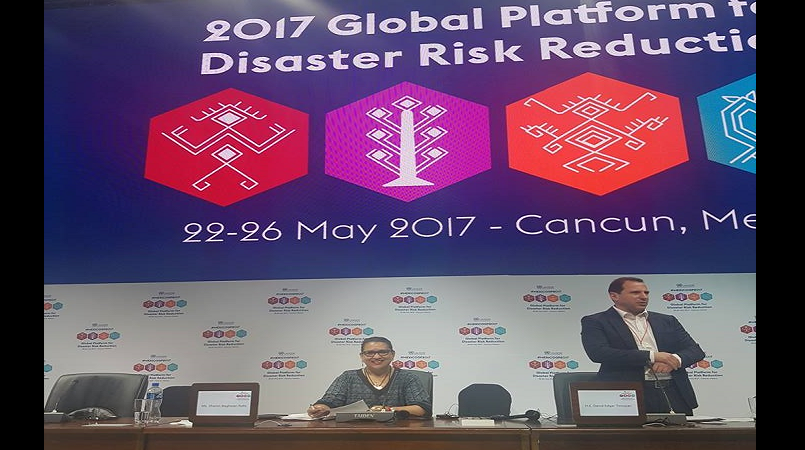
The world’s small island developing states (SIDS) including those in the Pacific are still facing issues with regards to access and timely disbursement of funds with the new Green Climate Fund.
The message was heard loud and clear at a two-day meeting that preceded the United Nations biennial forum Mexico is hosting this week in its holiday city by the Caribbean Sea coast this week.
Island Business reports presentations at the meeting by SIDS and members of the UN lobby group, the Alliance of Small Island States (AOSIS) showed that access to finance and delays in fund disbursement continued to hamper the implementation of GCF.
Fiji’s seven year long urban water supply and wastewater management project for instance was expected to cost US$222 million (approximately FJ$444 million). It was approved in November, 2015 but to this week, zero funds have been disbursed.
Samoa and Mauritius are reporting the same story with no disbursements of their GCF-funded water related projects of US$65.7 million and USD$8.2 million respectively. Both projects were approved by the board of GCF in December, 2016.
Fiji had estimated in its proposal paper that the water project would have benefitted some 291,000 people, particularly “women from vulnerable households.” That accounts to around 32.3 per cent of the island nation’s population. The idea was that once implemented the nearly half-a-billion water project would improve the livelihoods of people and communities, as well as health, food and water security.
The Fijian Government contribution was estimated at US$$85.3 million with the Asian Development Bank (ADB) the accredited entity.
Samoa on the other hand estimated that its proposed enhancing climate resilience of the Vaisigano River catchment project would benefit 37,000 people. It would provide training for alternative income generating activities, entrepreneurial businesses in agriculture and climate change and flood-related business options specifically targeting women and young people.
Samoan Government’s contribution was estimated at US$8 million. UNDP, the United Nations Development Programme is the accredited entity.
Pacific SIDS sole representative in the 24-member GCF Board, Samoa’s Permanent Representative to the United Nations, Ambassador Ali’ioaiga Feturi Elisaia who is also at the United Nations Global Platform for Disaster Risk Reduction in Cancun told SIDS delegates that he understands the frustrations expressed against the global fund.
He said the board was working at ways to remove blockages and speed up disbursements of funds.
Security is tight at this Mexican city with the opening of the weeklong UN conference scheduled for later today by the Mexican President Enrique Pena Nieto. Pacific countries are well presented with representatives from both the public and private sectors, as well as NGO, women, disability and youth delegates.
The Pacific Community (SPC) is coordinating the Pacific representation which will see the participation of the President of Kiribati, Taneti Mamau at a side event today on Disaster Risk Reduction Experiences in the Pacific.
He will be joined by the Minister in assistance to the President of the Marshall Islands, Mattlan Zackhras, Fiji’s permanent secretary responsible for national disaster management, Meleti Bainimarama and the head of the Pacific hub for Trend Media Pacific and chair of Fiji’s Business Disaster Resilience Council, Morika Hunter.
Photo by: Morika Hunter (Facebook)
